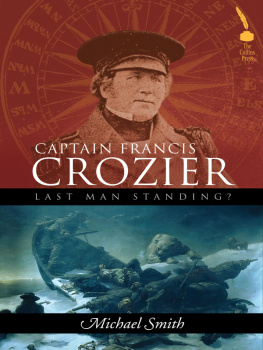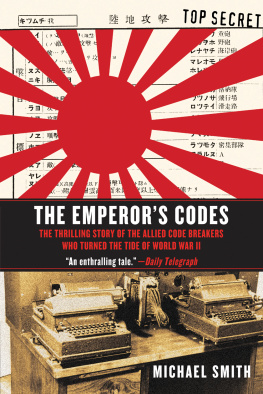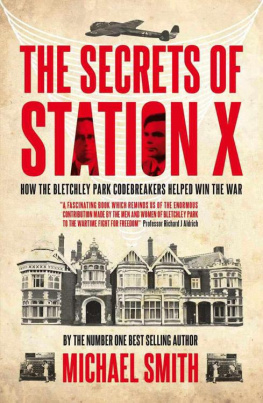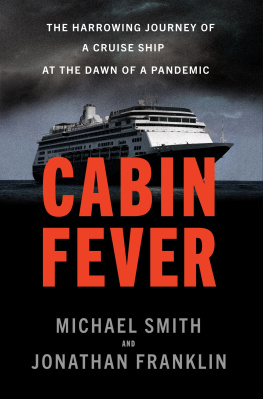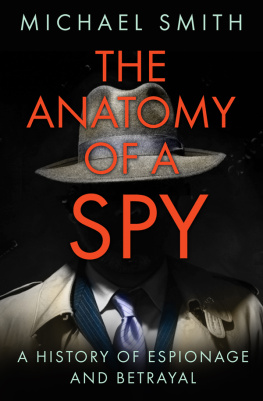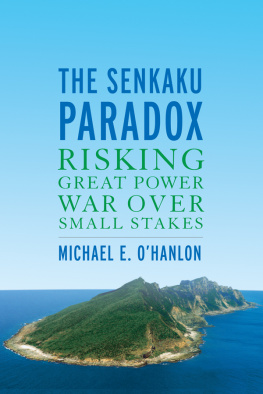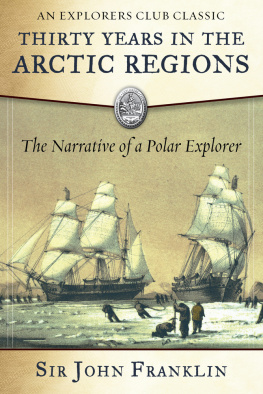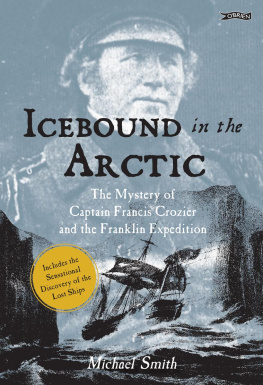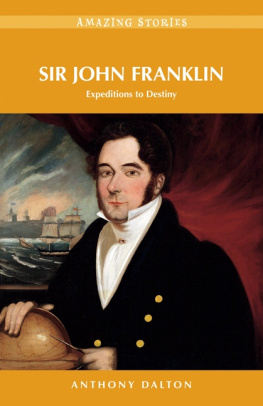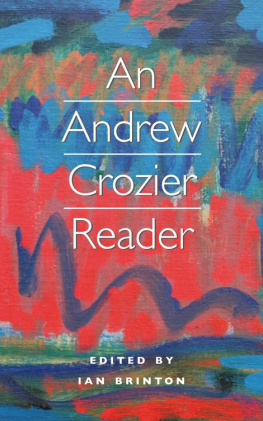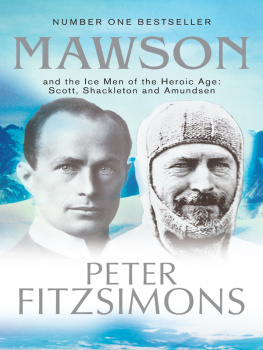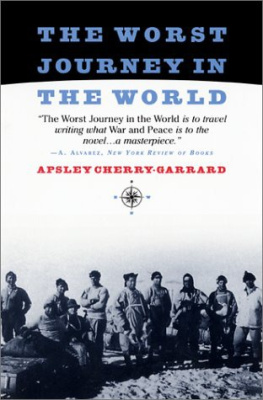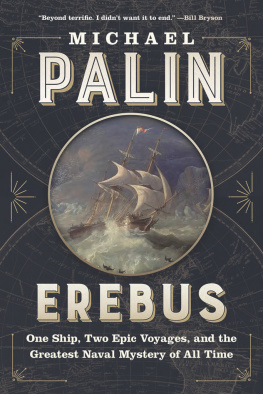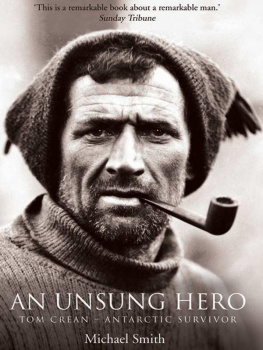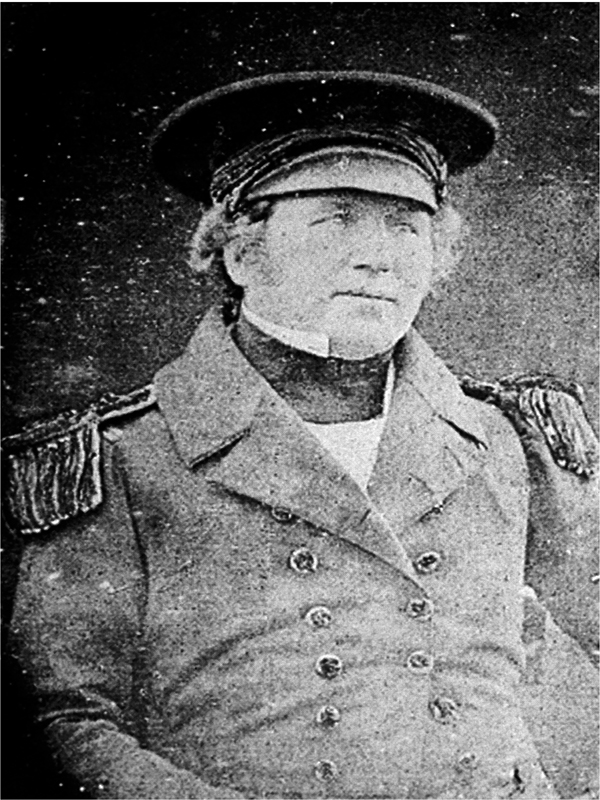






This book is dedicated to those who mean most to me:
Barbara, Daniel and Nathan.
Contents
Notes
In general, the terminology in use during the nineteenth century is employed in this book and where necessary, the modern version is also included. For example, Van Diemens Land refers to Tasmania (in use after 1855) and I have generally used Great Fish River or Backs Great Fish River for what is today known as Back River.
The question as to how to refer to the native people of the Canadian Arctic during the age of exploration is a difficult one for a writer. Although the most acceptable term today is Inuit, the term Eskimo (or Esquimaux) was commonly used during the nineteenth century. For the purposes of this book, I have opted for the contemporary term of Eskimo. No discourtesy is intended.
The punctuation, spelling and grammar used in original quotations are faithfully repeated, however erratic they may be.
Temperatures are shown in Fahrenheit with conversion into Celsius and weights are generally given in Imperial measure with approximate metric conversions. Distances are usually given in statute miles with conversion to kilometres.
Acknowledgements
This book could not have been written without the help and support of a large number of people, and I am extremely grateful to all those whose assistance has made it possible to chronicle the life of Francis Rawdon Moira Crozier. Any omissions are unintentional.
Special mention should go first to those members of the Crozier family who gave me valuable support and every encouragement to write this biography. They willingly provided documents and detailed knowledge about the family and its most famous son. I extend my sincere thanks to Carol Crozier, James Crozier and John Crozier for their help and much-appreciated kindness. In particular, I am deeply indebted to Martin Crozier who generously and enthusiastically shared his unrivalled knowledge of the Crozier lineage, and who was a constant source of assistance.
The people of Banbridge the birthplace of Francis Crozier are evidently very proud of their close association with such an illustrious figure, and the towns pride was reflected in the warmth of my reception and the support I received during my research. Personal thanks must go to Jason Diamond of Banbridge Genealogy Services, whose help and co-operation has been invaluable. His thoughtful contributions at the outset were very important to my research and I owe him a great deal. Mention must also be made of Evelyn Hanna and the staff of Banbridge Library, who were always helpful and generous with access to the archives and with local knowledge.
I am grateful to Brenda Collins of the Irish Linen Centre and Lisburn Museum and Berni Campbell of Central Library, Letterkenny. I am particularly indebted to Shirley Sawtell for her patient endeavours on my behalf in the library of the Scott Polar Research Institute and to Robert Headland, the archivist, for permission to inspect and quote from material in the Institutes archives.
I am very grateful for the consistently obliging archivists and other staff at Ballynahinch Library; Berkshire Record Office; British Library; National Archives; Mike Bevan, David Taylor and Barbara Tomlinson and staff at the National Maritime Museum; National Portrait Gallery; Public Record Office Northern Ireland; Mary Chibnall in the library of the Royal Astronomical Society; Julie Carrington and staff at the Royal Geographical Society; Matthew Sheldon, head of research collections at the Royal Naval Museum; Royal Society; Dr Norman Reid, keeper of manuscripts at St Andrews University; and the Archive Office of Tasmania.
I received painstaking and valuable assistance from John Hagan, a native of Banbridge now living in Tasmania. He gave me important advice and valued help in researching and comprehending the links between Francis Crozier and Tasmania. I must also thank Doris Hagan for her contribution, which is much appreciated.
Frank Nugent a member of the first Irish party to sail the North West Passage was a generous and considerate supporter of this work. I will always be grateful to him for his unselfish assistance and willingness to share his knowledge of Irelands long involvement in polar exploration. I am also grateful for the helpful advice I received from David Murphy and the useful contributions of Maria Pia Casarini, Louie Emerson, Dr James McAdam and Horace Reid.
I have, where possible, identified all known sources of the material used in this book and provided full accreditation where it can be properly established. I have also made every reasonable effort to trace copyright holders of documents and photographs. Any omissions are unintentional and I would be pleased to correct any errors or oversights. My special thanks to Joe OFarrell for reading the manuscript and providing much thoughtful and constructive advice.
It would not have been possible to write this book without the astute involvement of my two sons, Daniel and Nathan, whose skill and patience in handling my incessant requests for assistance with modern technology has been invaluable. Without their calming influence, this book might well have been written with a quill and ink.
Finally, I must say a huge personal thanks to Barbara, my wife. She was unwaveringly supportive and patient, and these few lines can never fully express my deep gratitude.
M ichael S mith
J une 2006
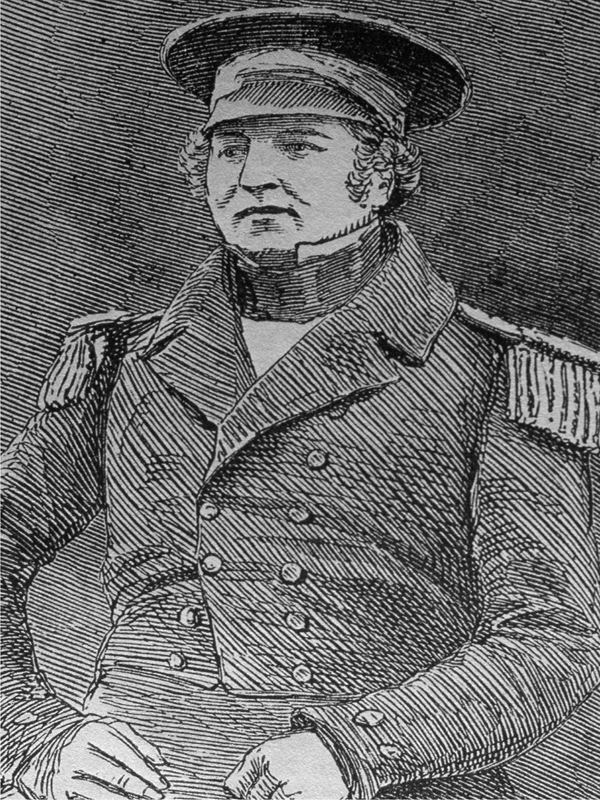
Francis Rawdon Moira Crozier, explorer, sailor and scientist.
Introduction
A Modest, Unassuming Man
T here is a common perception that all the great stories from the history of polar exploration involve the outstanding figures of the early twentieth century the heroic age such as Roald Amundsen, Tom Crean and Ernest Shackleton. Each undoubtedly warrants his place in the pantheon of great figures whose incredible exploits rightly separate them from us mere mortals.
Yet to focus entirely on this era would be mistaken. There are explorers from an earlier age who also deserve to have their extraordinary stories told men whose lives and remarkable achievements rank with those of their successors, and whose feats merit greater praise. Such men made history and mapped the unknown, yet have been largely overlooked or forgotten in the modern era. Such a man was Francis Rawdon Moira Crozier.
Francis Crozier sprang from an old-established Irish family about 200 years ago to travel on six historic journeys of exploration and discovery at both ends of the world. It would be impossible today to be as cut off and isolated from civilisation for as long as Crozier was during his successive journeys into unexplored territories; or to be as lost as Crozier was at the end of his life.
Next page
